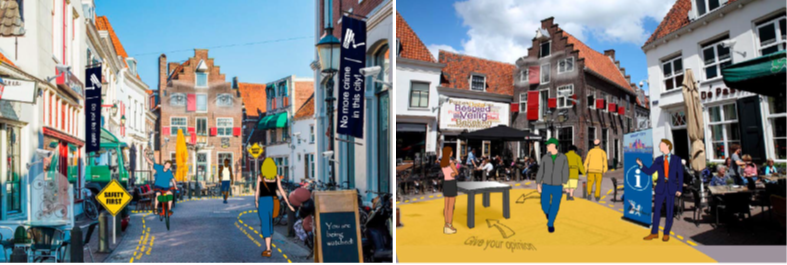The summertime is an excellent period to reflect on the last academic course. Last year, one of our most inspiring activities was our involvement in the Scenario-Based Product Design (SBPD) course, where we had the pleasure of being case-owners for two groups of students. SBPD tools and techniques are suitable for our research project since they facilitate an open-ended design process that involves stakeholders to explore, ideate and/or conceptualize ideas.
The students successfully organized co-design sessions with citizens and the municipality of Amersfoort. Both groups worked on solutions to trigger controversies, aiming at creating awareness of the existence of tensions while using technologies in smart cities. This way, students focused on stimulating debate among different sectors of society.
One of the groups proposed to use an app, called the “moral filter”, to display the controversies in citizen’s phones and make them aware of how controversies could potentially influence their behavior in the city. (Authored by Judith Ditscherlein, Renske Hortensius, Ruben Pot, Ellis van Steenis, Lisanne Verheij)

Another group designed a city walk in Amersfoort where citizens could experience first-hand what technology was doing in the city and the type of data that was being collected. At the end of the “controversy walk”, citizens could describe their impressions and feelings. (Authored by Anne Bulten, Sophie Kooij, Eeuwe Krikke, Lara Siering, Marianne Visscher).

Our collaboration with students was a great source of inspiration and we plan to participate in more courses in the near future. If you are interested in collaborating with us and getting inspired together, don’t hesitate to send us an email!
Note- Special thanks to the groups of students for their good work (Judith Ditscherlein, Renske Hortensius, Ruben Pot, Ellis van Steenis, Lisanne Verheij, Anne Bulten, Sophie Kooij, Eeuwe Krikke, Lara Siering, Marianne Visscher) and to dr. Deger Ozkaramanli for giving us this great opportunity.
